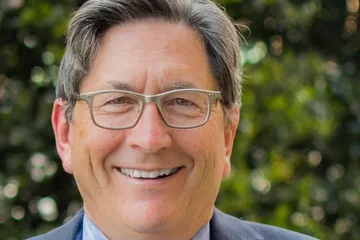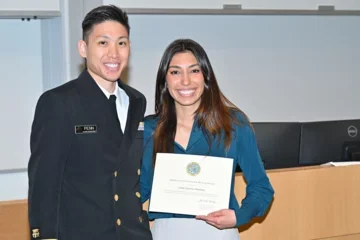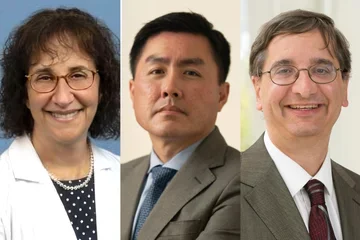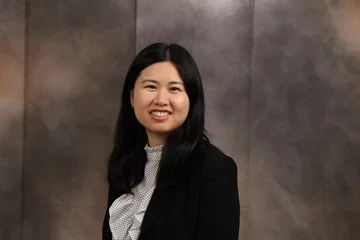Ronald Reagan UCLA Medical Center Leads in Patient Satisfaction
Highest-Ranking Hospital in the Area
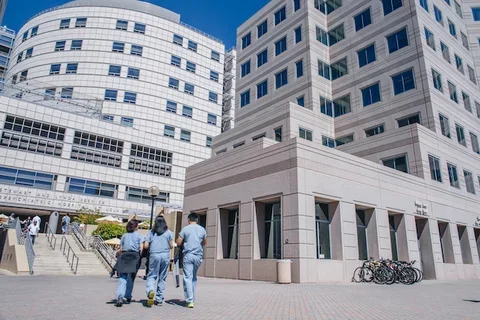
Faculty, Residents, Physicians, and Staff Receive Training on Compassionate Communication and Are Expected to Treat All Patients Like Their Own Family
Ronald Reagan UCLA Medical Center is the top hospital for patient satisfaction in Los Angeles, according to HCAHPS survey data released in October. The hospital received four out of five stars, the highest-ranking hospital in the area.
Communicating Patient- and Family-Centered Care
Medicine is changing in more ways than one, with a shift away from productivity measurements and more toward population health and patient-centered care. Respect and compassion are at the heart of every patient encounter.
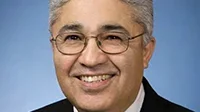
"We all have a common purpose here, which is to treat patients and families like we would our own family," says Chief Patient Experience Officer Tony Padilla. "We have a standard approach to communication that everyone is expected to follow, whether they are housekeeping staff, physician, nursing or the CEO."
Providing an excellent patient experience consists of three key areas: effectively delivering care that heals and cures, providing quality clinical care and communicating with care and empathy. Students and faculty alike have plenty to explore within these elements.
Training the Next Generation for New Models of Care
Every member of the staff at Ronald Reagan UCLA Medical Center is trained with the CI CARE steps of communication. Residents and faculty may receive additional training, as well.
Students who perform rounds with physicians or observe in clinical settings will see this level of communication and focus on patient wellness across every department. Having organized processes throughout the medical center and health system, however, helps to provide patients with a more seamless care experience. This is where Lean methodology comes in. Lean values strive to reduce wasteful tasks that don't improve the delivery of quality care, according to the Institute for Healthcare Improvement, and Padilla observes more and more physicians are trained in these techniques. Naturally, it's a great avenue for medical students to pursue as well.
"If it's not forthcoming, medical students should seek out Lean training," Padilla says. "Physicians will be expected even more in the future to contribute to improving hospital and health-system processes."
Supporting Compassionate Physicians
Another key aspect of patient-centered care is having compassionate providers. Most students enter medical school excited about the possibilities when helping people. It's easy to lose this initial interest as they get caught up in textbooks or overwhelmed by training.
To maintain that enthusiasm and passion, Padilla encourages students to seek opportunities to participate in patient-experience rounds. Talking to patients reminds students why they are here.
Medicine is an emotionally demanding job, and UCLA supports the emotional health of its physicians just as much as their performance. This is a big contributor to high patient-satisfaction scores, as well. Physician burnout and fatigue are well-documented phenomena, for which Padilla says the health system offers opportunities to debrief on emotionally challenging cases. Doctors can share their experiences with one another, gain new insight and vent their concerns in a safe environment.
"We encourage all our physicians to take care of themselves and provide safe places for them to talk about challenges or struggles," Padilla says.
Each of these elements working together is the source of excellence in the region surrounding the David Geffen School of Medicine at UCLA. Padilla acknowledges there's always room for improvement, but the continued training of current faculty, combined with high expectations of future physicians, keeps the medical center at the top of its game.
